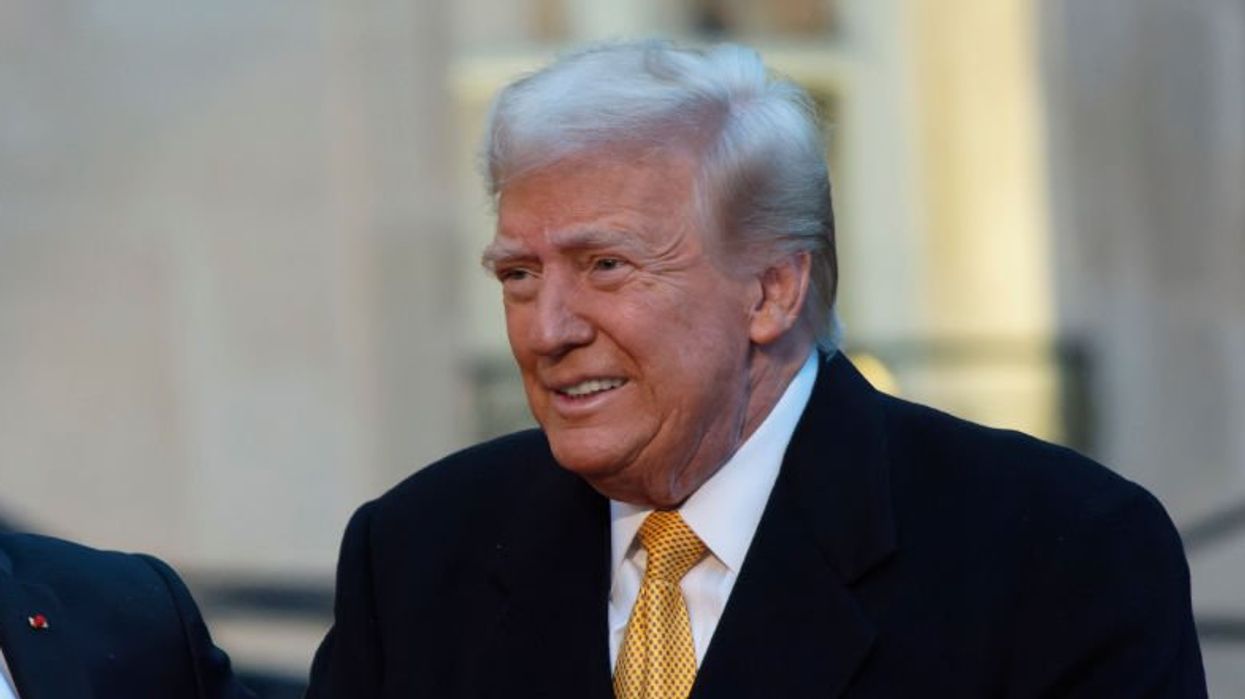If Sam Daley-Harris ever retires, it won’t be any time soon. He confides, with a smile, that he just turned 78. And while that may seem fitting for an age when some of the most powerful politicians are octogenarians, his batteries seem to hold a better charge than most.
Success will do that to you, and Daley-Harris is among the most effective advocates and activists in the nation. That’s true, even though you probably haven’t heard of him.
I sat down with him via Zoom earlier in December. This wasn’t the first time. I have written before about the effectiveness of his “transformational advocacy” form of lobbying, which turns ordinary volunteers into mini-experts capable of talking to community, state and congressional leaders and to editorial writers. But this seems different, coming as it does near the dawn of a second Trump administration. He doesn’t flinch when I ask whether he will have to change tactics. When your underlying strategy is to develop lasting relationships with the people you lobby — relationships that last far longer than the issues of the day — there is no need to do much adjusting.
Relationships matter
“The volunteer who is building a relationship over the last five years isn’t going to dump that relationship,” he said. “That’s their pipeline to change.”
Call it the secret sauce for successful lobbying.
Years ago, Daley-Harris founded a nonprofit called “Results.” As I have written before, it’s an organization that lives up to its name, playing a key role in the decline in preventable child deaths worldwide from 40,000 per day in the early 1980s to 13,800 per day in 2021.
He outlines this in his book, “ Reclaiming our Democracy,” which will be available in a new paperback edition Jan. 14.
Back in 2011, Results gave me an award for my reporting on issues related to global poverty and hunger. The organization has connected me numerous times with Muhammad Yunus, the Nobel Peace Prize winner and current interim prime minister of Bangladesh, who established a microcredit program — giving small loans to the poor and teaching them how to start businesses — that has lifted thousands out of poverty.
Changing the world
But these aren’t the reasons I keep writing about Daley-Harris and others who lead the organization. It’s because of the way they quietly go about changing the world.
This formula, and Yunus’ method of incorporating capitalist methods in his fight against poverty, has resonated with Utahns over the years. It offers permanent solutions, not handouts.
And that seems to work no matter who is in the White House. Daley-Harris reminds me that, in 2019, the Trump administration had called for a 29% cut in federal funding for the Global Fund to Fight AIDS. Rather than give up, Results volunteers used the relationships they had built with members of Congress, both Republicans and Democrats, to their advantage. Those members of Congress signed letters of support that were sent to congressional leaders and Mike Pompeo, who was secretary of state at the time.
Instead of a 29% cut, the administration ended up signing a 16% increase.
Musk and DOGE
Time will tell whether that momentum can continue in a Washington where Elon Musk is charged with making cuts that enhance government efficiency. Anyone who thinks clearly about the mounting national debt knows how important that effort is, no matter who is leading it, and what a mountain it would be to conquer. And yet, there are vast differences between cuts that eliminate waste and cuts that eliminate opportunities to save lives.
In any event, Results volunteers will keep making their case. As Daley-Harris’ book says, they will be “unreasonable.” Not hard to work with, but “profoundly, unshakably committed to a big vision.”
When they run into a public official who won’t support them, these volunteers are trained to ask, “What would it take to change your mind?” Then, “Could you say more about that?” And, finally, “Why do you think that is?”
Compare this to traditional advocacy, which may involve ineffective protests, form letters or petitions. Daley-Harris said only 3% of congressional staffers say form letters are effective, while 94% say the same about in-person visits from informed advocates.
That’s the secret sauce. Daley-Harris tells glowing stories of regular people who return from their first meeting with a member of Congress — something they never envisioned themselves having the courage to do — feeling a new sense of confidence and hope.
Many organizations merely ask for signatures on letters and monetary donations. Daley-Harris changes people.
When the subject returns to whether he ever will retire, Daley-Harris talks about how his mother lived to be nearly 101. “So, who knows?” he says.
But when it comes to transformational advocacy, the most important thing is keeping the recipe for the secret sauce alive.
How this activist will adjust to the Trump administration was first published on Deseret News, and republished with permission.
Jay Evensen is the Opinion Editor of the Deseret News.




















Trump & Hegseth gave Mark Kelly a huge 2028 gift